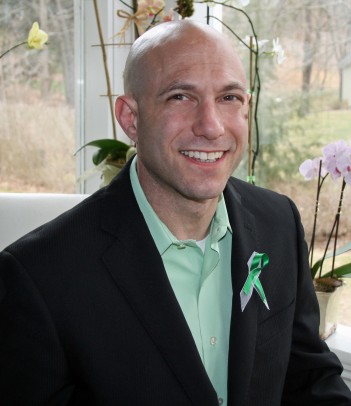After loss, father brings message of violence prevention

“We can create a model or a paradigm,of violence and compassion,” says Jeremy Richman, who founded the Avielle Foundation with his wife after their daughter was killed.
Jeremy Richman lost his only child, 6-year-old Avielle, when she was killed with 19 other children and six educators in the 2012 shooting at Sandy Hook Elementary School.
Richman and his wife, Jennifer Hensel, created the Avielle Foundation to build compassion and prevent violence through community engagement, neuroscience research and education. Although people often tell Richman they can’t imagine what his family went through, he doesn’t want them to look the other way.
“We want people to imagine it,” said Richman, a neuroscientist and CEO of the Avielle Foundation. “We want people to put their feet in somebody else’s shoes for a short time, as horrific as it might be, because that’s the only way to motivate us to actually roll up our sleeves, put our boots on the ground and do something to create the change that we need to create in the world.”
Richman will discuss ways to prevent violence and foster compassion Oct. 29 at the annual Leeuwenhoek Lecture sponsored by Cure Violence, a violence prevention program based in the UIC School of Public Health.
“Brains, Biology and Violence” takes place from 7 to 8:30 p.m. in the Fine Arts Building, 10th floor Curtiss Hall, 410 S. Michigan Ave. The event is free but reservations are required.
Charles Ransford, Cure Violence director of science and policy, will speak on the effectiveness of a public health approach to violence prevention. Richman will discuss bridging biochemical sciences and behavioral sciences.
“We can create a model or a paradigm, if you will, of violence and compassion,” Richman said. “We do already know a lot of the risk factors that lead people to engage in violent acts and the protective factors that build compassion and prevent violence, and we need to encourage people to help foster that knowledge because we think that knowledge isn’t just power, it’s empowering.”
Richman said treating violence like a contagious disease can help us understand how to interrupt it before it spreads. The brain is an organ that can be healthy or unhealthy, he said.
“No matter what genetic hand you’ve been dealt that you have no control over, and no matter what life situational environment that you’ve been born into or grown into, there’s always hope to change that and to improve it.”
